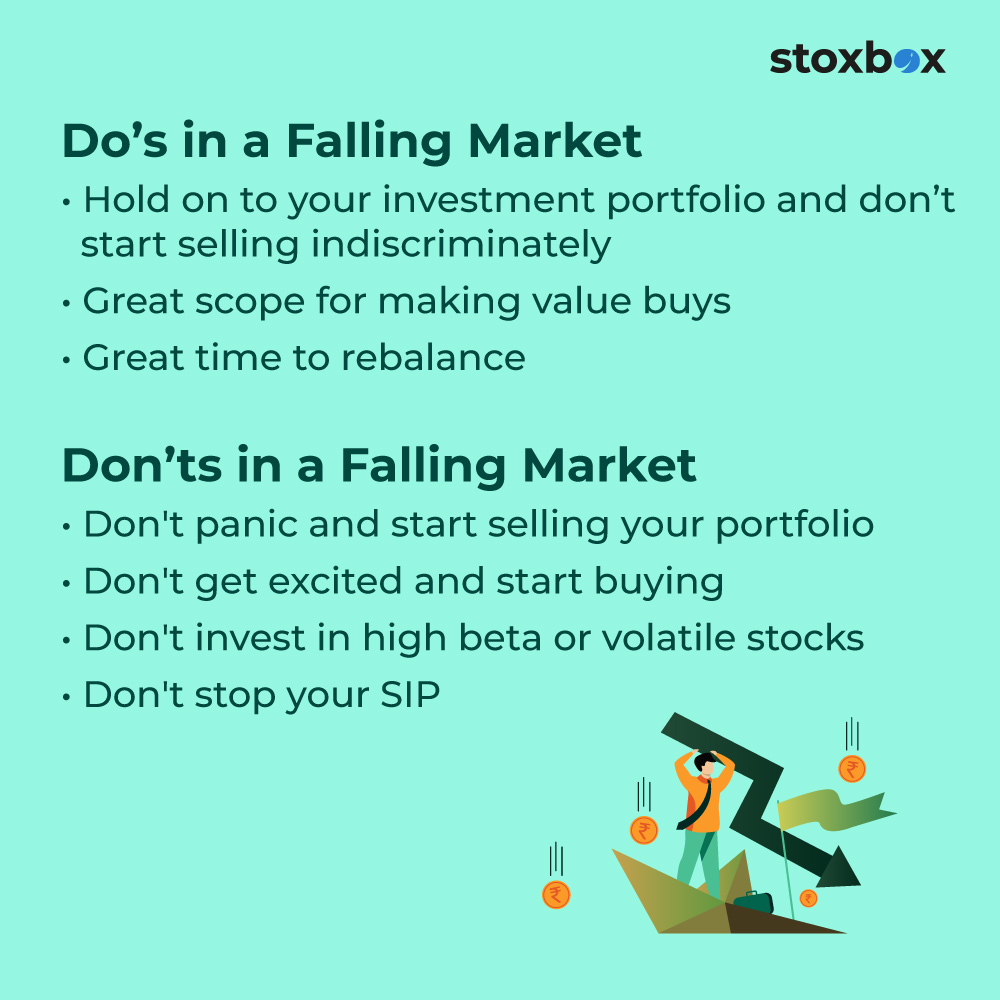If you have been tracking the market, or even just keeping an eye on the news, you would have heard chatter on how the market has been reaching new highs every week. With high liquidity, strong positive sentiment, and robust earnings from various major companies, the market has been performing exceedingly well and crossing new milestones regularly. This has prompted everyone, from novice traders to experienced players, to turn to the market for making a quick buck. However, there is no consensus over how long this bull sentient will prevail. People are concerned about what they will do if the market starts falling after a certain limit.
Have you invested in the burgeoning market through mutual funds? Do you track your returns on a daily basis, like most of us are prone to do? Does it give you a thrill to see the returns increasing? And, does your heart drop when the last day’s profits are erased and your returns stand lower than where they were a few days ago? If you also struggle to keep pace with the ups and downs of the market, you are at the right place!
For many of us, a falling market may appear like a falling knife, making its way to decimate our wealth. Seeing such a fearsome sight may also prompt many of us to take our money out of the market and wait for it to go up again before reinvesting. This is a mistake many of us are prone to make. However, it is imperative that we think logically, rather than emotionally, when it comes to the market and the following do’s and don’ts will keep you in good stead as you deal with the fancies of the equity market. It is, after all, a cycle of ups and downs and only the most prudent of investors are able to ride out the storm and see the bigger picture.

Do’s in a Falling Market
• If you began your investment journey only after seeing the market rising, you are likely to feel panic in a falling market. However, it is imperative that you hold on to your investment portfolio and don’t start selling indiscriminately just because you see red in the market. Further, you must continue with your Systematic Investment Plans (SIPs) to take advantage of rupee cost averaging. This means that, when the market is falling, your SIP investment will be able to buy more units, thus growing your investment size at a cheaper rate.
• Falling markets offer great scope for making value buys. Invest in safety stocks that have a low beta, or volatility measure, are well-established, and have delivered consistent returns over a period of time.
• Falling markets are also a great time to rebalance. Review your portfolio, assess the stocks you have purchased, and hold stocks that continue to show long-term fundamental value. Buy stocks that are now available at a cheaper valuation and exit stocks that might see a dent in their long-term prospects.
Don’ts in a Falling Market
• Don’t panic and start selling your portfolio in the fear that your investments will go to zero tomorrow. Staying invested, over the longer term, is most likely to yield strong returns.
• Don’t get excited and start buying stocks just because the price is ‘cheaper’ today than it was yesterday. There is no guarantee that all stocks will see a rise in prices going ahead.
• Don’t invest in high beta or volatile stocks.
• Don’t stop your SIP as this is the best time to build a strong portfolio.
Now that you know what to do and what not to do during a falling market, tune in to the cycles of the market and take steps to proactively grow your wealth.
Frequently Asked Questions
What is a falling market, and how should investors approach it?
A falling market, or a bear market, is characterized by declining stock prices. Investors can adopt strategies like value investing, diversification, and disciplined SIPs to mitigate risks.
Is it advisable to continue SIPs during a falling market?
Yes, continuing SIPs in a falling market helps in rupee cost averaging, allowing investors to accumulate more units at lower prices, which can lead to better returns when the market recovers.
How does diversification help in a falling market?
Diversification reduces risk by spreading investments across various asset classes, sectors, or geographies, ensuring that losses in one area are offset by gains or stability in another.
What is the role of defensive stocks in a falling market?
Defensive stocks, like those in FMCG or utilities, are less volatile and tend to perform better during market downturns, offering stability to an investment portfolio.
Should investors sell their stocks in a falling market?
Selling during a falling market may lock in losses. Instead, holding quality stocks with strong fundamentals or reallocating to safer assets is a better approach.
Can falling markets be an opportunity for investors?
Yes, falling markets offer opportunities to buy quality stocks at discounted prices, enabling long-term investors to build wealth as the market recovers.
What are some common mistakes to avoid in a falling market?
Common mistakes include panic selling, overreacting to short-term volatility, not having an emergency fund, and failing to review and rebalance the portfolio regularly.
You might also Like.
No posts found!

